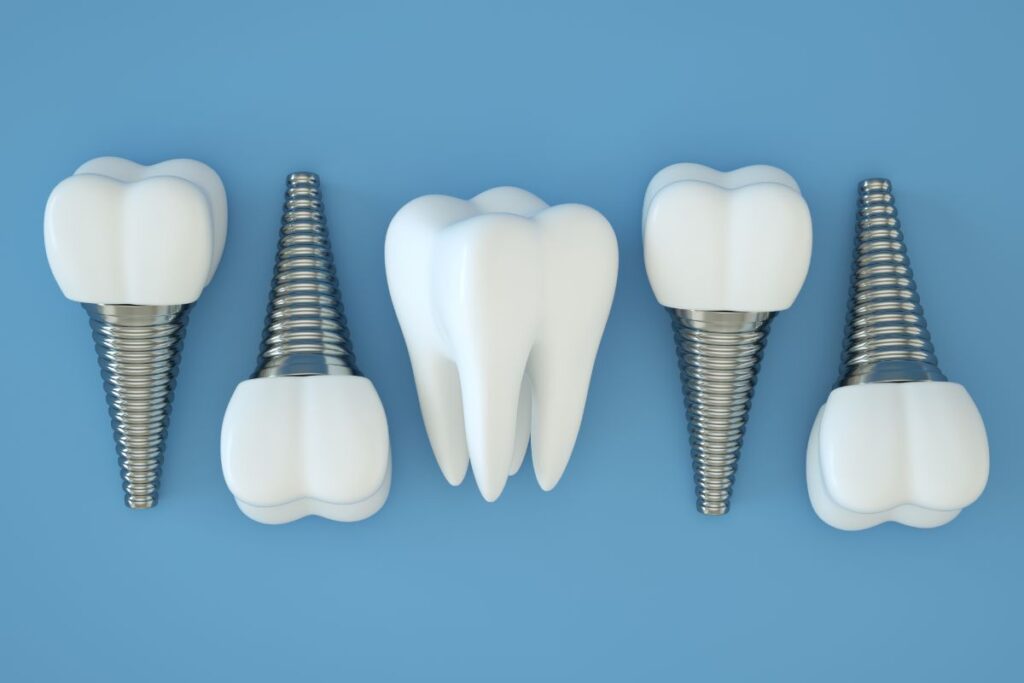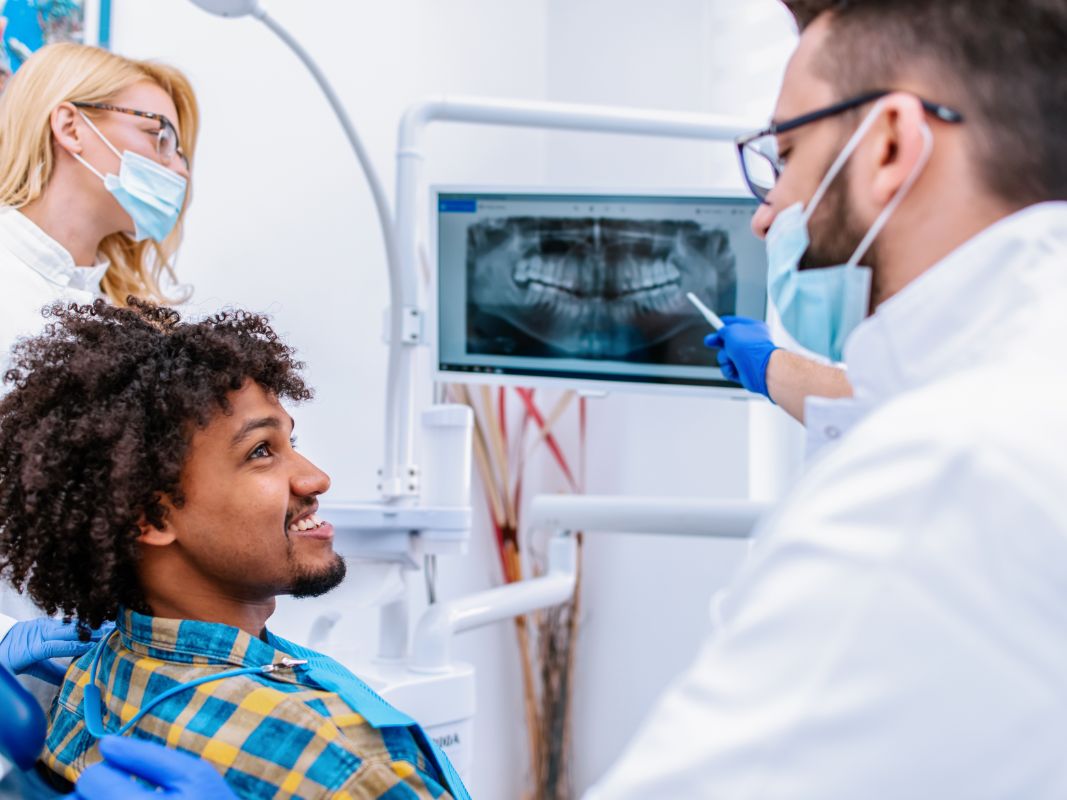Not so long ago, there were limited treatment options for anyone who found themselves missing one or more teeth. Most had to choose between dentures, partials, or bridges if they hoped to restore their smile, but technology has come along in leaps and bounds since then! Modern dental implants have decades of success behind them now and offer patients a safe, attractive, and long-lasting solution. Missing teeth can affect you by changing your appearance, limiting your diet, and more. The Northeast Arkansas Center for Oral and Maxillofacial Surgery can improve the way your smile looks and functions with dental implants, so keep reading below to learn how!
What are dental implants?
Today’s implants are usually made of titanium, as the body naturally accepts this material. Missing teeth can be replaced by placing a small metallic screw directly into the empty socket. Over time, the jawbone and gum tissue around this area will fuse with the implant to form an artificial root. This will hold the implant in place for many years.
Once the implant area has fully healed, a small connector called an abutment will be attached to the implant. The abutment holds the new tooth, or crown, which is the same color and shape as your own teeth. This allows it to blend in with your natural smile seamlessly! If multiple teeth are missing, a bridge or denture can be affixed to the implant(s) instead of a single crown/cap.
Since the implant fuses to the bone, many patients find the fit is more comfortable and secure than traditional substitutes. Dental implant restorations also tend to feel and function more like natural teeth.

What are the steps involved in a dental implant procedure?
The long-term success of dental implants depends on giving the body adequate time to accept the implant before concluding treatment. For this reason, the dental implant process is typically conducted in three separate phases and can take a few months from start to finish. Our oral surgeons are highly trained and experienced, allowing them to create a custom treatment plan in concert with your dentist that will document all aspects of care, including the surgical and restorative implant phases.
Phase One: Planning and records
The first step in the implant process is examining the bone structure around the missing tooth or teeth by taking a 3D scan of your jaws. For us to place an implant in the best location for the best outcome, we need to ensure the proper bone height, width, and density are present. If the bone is inadequate, grafting may be required prior to placing the implant. If this is necessary, we’ll need to wait a few months for the area to heal before moving on to the second phase.
If certain conditions are met, a non-restorable tooth may be extracted and an implant placed at the same appointment. This is called an “immediate implant,” since the implant is placed immediately after the tooth is extracted.
Phase Two: Implant placement
During this stage of the treatment process, one of our doctors will insert the implant into the predetermined location based on the digital planning that was previously done with the 3D scan. Once the procedure is complete, the area will need to heal for a few months before moving on to Phase Three. There will be regular checkups in our Jonesboro office during this period to ensure everything is moving in the right direction.
Phase Three: Implant restoration
The final phase is implant restoration. This process will be completed by your referring dentist. Depending on your specific needs, he/she will place a natural-looking dental crown on top of the abutment which is attached to the implant itself, or use a fixed bridge on the implant posts. If a full arch replacement is necessary or your denture needs to be replaced, then the entire teeth restoration will be attached to the implants. Whatever the configuration, implants are the closest you can get to your natural teeth! You’ll be amazed by how they restore functionality and improve the overall appearance of your smile.
What is the recovery process like with dental implants?
There may be some slight discomfort and pain for a week or so as the mouth heals once the dental implant procedure has been completed. We will provide patients with gauze packs to bite down on, which will help control the initial bleeding. Ice packs can also be applied to reduce swelling. A soft diet may be recommended for the first few days after the procedure.
Caring for dental implants
Dental implants must be cared for and maintained just like natural teeth. This includes brushing at least twice a day for two minutes each time, flossing every night before bed, and regular dental check-ups every six months. A special purpose implant brush and interdental brushes can help clean the side of the implant more effectively.
Dental implants have a very good chance of lasting a lifetime, depending on the patient’s age. Even the crown connected to certain implants can last for up to 15 years before needing a replacement. Maintaining a good oral hygiene routine and scheduling visits with us throughout the year will ensure the implants can be enjoyed for many years to come!

Restore your smile with Northeast Arkansas Center for Oral and Maxillofacial Surgery
Modern dental implants can be an ideal permanent solution to missing or partially missing teeth. Once the process is complete, they are functionally and cosmetically no different from your other teeth! Unlike dentures or bridges, which can actually degrade bone tissue over time, implants will keep the tissue healthy and strong. Not everyone is a candidate for this procedure, however. We will generally only recommend implants for patients who have relatively good dental health since viable bone tissue must be present to ensure they stay rooted. This is why it’s so important to see us for a tooth implant as early as possible if you have a missing tooth or multiple missing teeth! Call 870-931-3000 today to schedule your consultation. Your smile will thank you!
